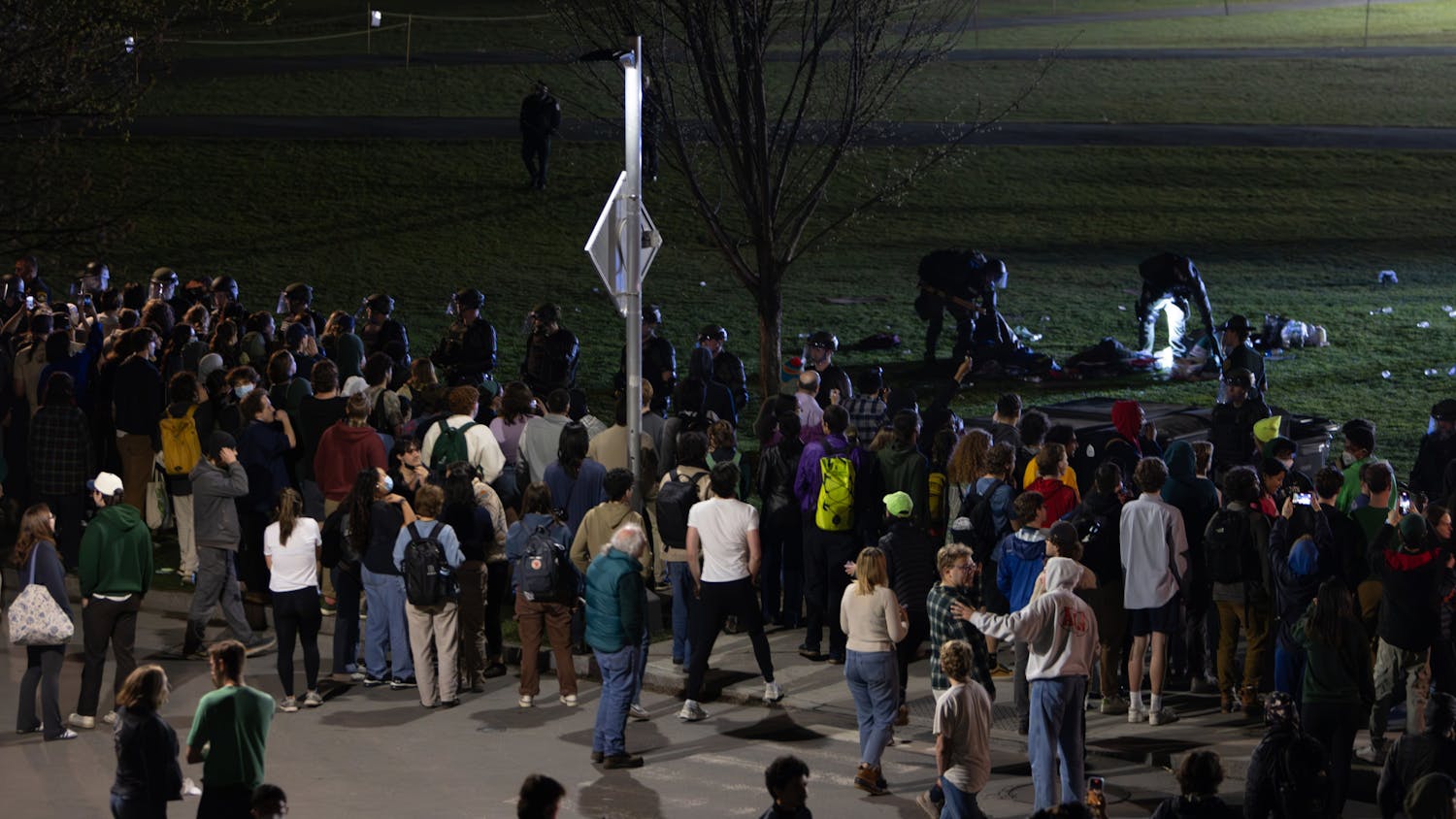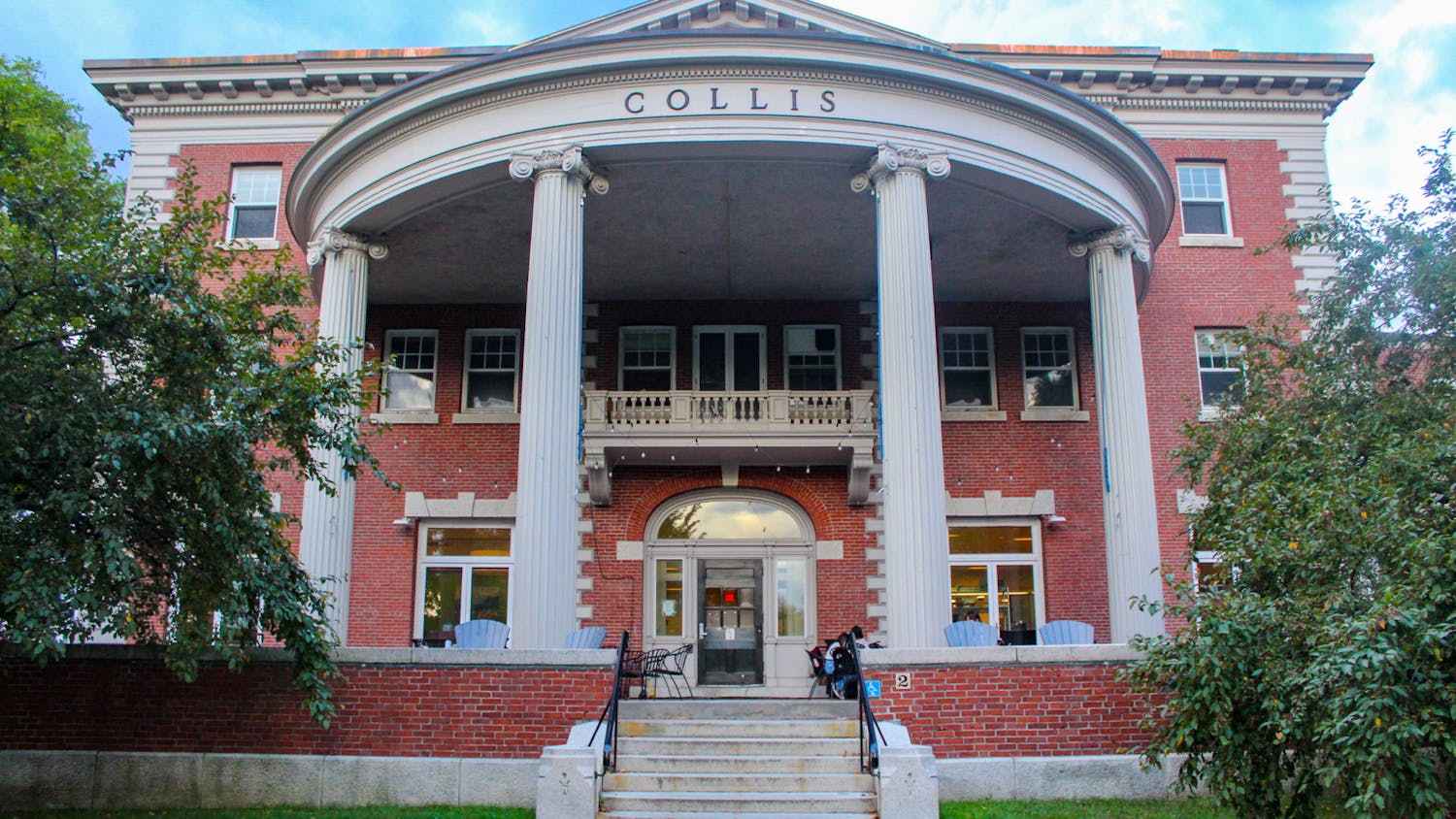The Interfraternity Council has responded to the College's proposal to move first-period rush to the fifth week of Fall term with a third-week rush initiative.
Under the proposal, Oct. 6, 2004 would be the first date sophomores could rush fraternities, allowing the IFC to run the rush process either in the latter half of the third week of the term, or in the first half of the fourth week. The College's proposal of rush after the fifth week would delay rush until Oct. 25.
The IFC submitted its written proposal to Dean of the College James Larimore late last week, and he and other administration officials are currently reviewing it. Larimore, who has been off-campus on College business, returned to Hanover April 21 and met with Greek Leadership Council executives to discuss the proposal.
The IFC hopes to have the proposal finalized before the end of April, but IFC President David Grey '05 said that discussions with the Office of Residential Life on modifications to the proposal might delay its finalization.
The proposal, drafted by Grey but approved by the entire council, outlines myriad reasons for holding rush in the first half of the term, stressing fall rush's importance to even non-Greeks.
"We think the proposed change would be a boon both to the fraternities of Dartmouth, and perhaps equally importantly, to student life for all undergraduates," the proposal states.
In a new line of reasoning against late fall rush, Sigma Alpha Epsilon fraternity would be thrown into conflict with its national body if rush began in the fifth or sixth week of fall. SAE's national policy mandates that each fraternity's new-member education period last a minimum of four weeks. Due to finals period and the Thanksgiving holiday, this would force SAE to either violate national policy or continue rush into the winter.
The proposal also argues that rush should be in the first half of the term for monetary reasons, as houses would not be able to charge to new members in the sixth week a full term's dues. Receiving more terms of dues is a partial motivation for the IFC to move rush from winter to fall.
Rush in the third week of Fall term would also lessen the academic impact of the process, as both new members and current members of houses would not need to conduct rush in the middle of midterm examinations. Additionally, a longer rush period would allow fraternities to spread their new member education period events over a longer period, further reducing its impact on academics, the proposal says.
For the long term, the IFC offered several broader changes to its own system to foster better relations with administration and faculty. In a proposal that would change new-member education for many houses, the IFC said it was willing to remove public aspects of the pledging process, such as uniforms or placards, from classrooms.
The IFC also proposed to form a committee to possibly implement a system-wide continuous member education, not just over one term of new member education. To help those going through the rigors of pledging, the IFC also proposed starting a program to help new members balance their time. Finally, the IFC said houses would host more non-alcoholic events to offer more programming options and to teach non-Greeks that houses are not based around alcoholic programming.
In a situation typical to even the most difficult negotiations, both sides gave ringing endorsements of each other. For the College's part, Larimore praised the work put in by the IFC, but said more was needed.
"I am pleased with the work they have done and I look forward to continuing to meet and work on this," Larimore said via a spokesperson.
Dean of Residential Life Martin Redman said ORL is continuing to work on the proposal with IFC, and would meet today or Tuesday to work on revisions.
Grey had similarly kind words for the administration, in particular Larimore. He stressed that the IFC is cooperating with the College on modifying the proposal, rather than taking a contradictory stance.
"At this point, things are progressing really well. Dean Larimore has been very easy to work together with," Grey said.
Grey said most of the subcouncils of the GLC were in favor of the IFC's proposal, although they have not yet submitted their own proposals. He added, however, that the Panhellenic Council would have a difficult time organizing their longer rush process, and might need to delay the change to the fall until 2005.
"Everyone wants it to work, but Panhell might not be able to modify their process in time for fall 2004," Grey said.
According to its proposal to the College, the IFC proposal prefers to hold rush in the same term as the other councils. In fact, this consideration was listed as a reason to move rush to the third week of fall rather than fifth.
The National Panhellenic Council, NALFO (La Unidad) and the Co-Ed Council have also expressed their pleasure with the IFC's proposal, according to Grey.



